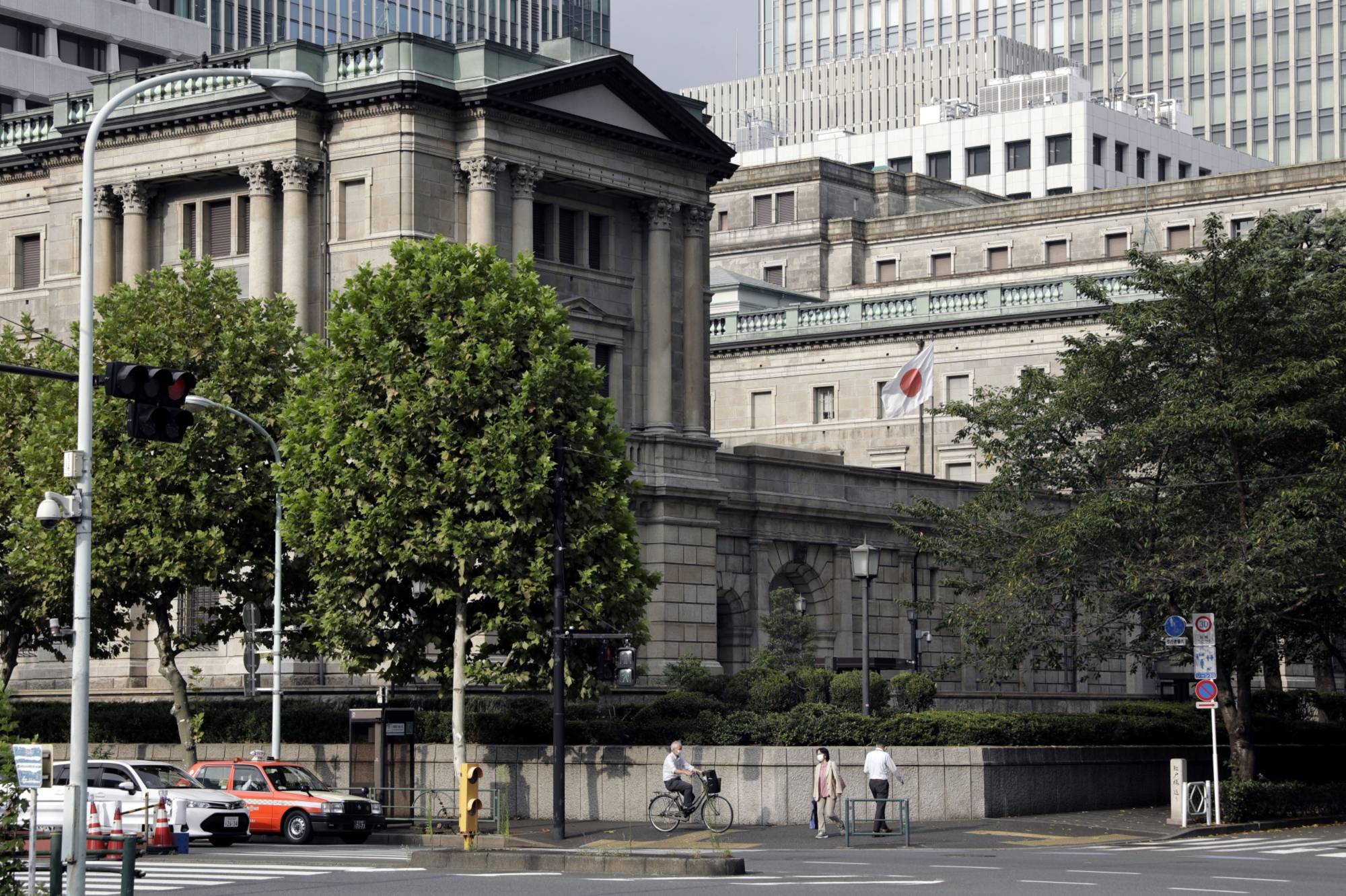The next prime minister is unlikely to change fiscal or other policies sufficiently to force the central bank to amend its monetary settings, a Bloomberg survey showed.
All-but one of 47 economists expect the Bank of Japan will keep its yield-curve control and asset-purchase programs unchanged at a two-day meeting ending Sept. 22. That’s one week before the ruling Liberal Democratic Party holds a leadership vote that effectively determines the next prime minister.
While the BOJ remains independent, like counterparts across the world it would be cognizant of politicians’ views. Former Prime Minister Shinzo Abe is a good example: His goal of reviving inflation via massive easing was implemented by the central bank. Still, there are few concrete expectations for the winner on Sept. 29.



